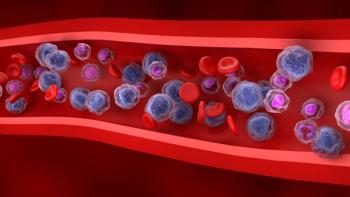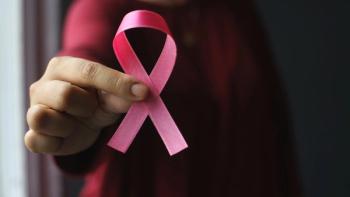
I have been diagnosed with breast cancer for the third time, and I find it interesting how the places where I seek support have changed over time.

I have been diagnosed with breast cancer for the third time, and I find it interesting how the places where I seek support have changed over time.

Clinical trials give patients with metastatic breast cancer access to new treatments, all while being closely monitored and moving the landscape forward.

Trodelvy led to fewer side effects that required dose reductions or stopping treatment vs chemo among previously untreated triple-negative breast cancer.

At the 2025 SABCS, researchers presented findings with the potential to meaningfully affect breast cancer treatment and patient care.

“Full House” star Dave Coulier, now undergoing treatment for tongue cancer, sat down for an interview with CURE.

Enhertu wins breakthrough therapy designation in some patents with HER2+ early breast cancer who have residual disease following neoadjuvant treatment.

Despite its vital function in many patients’ cancer journeys, palliative care is still the subject of several persistent myths and misconceptions.

From new drug approvals to real-world insights on quality of life, here are the top 10 cancer care stories of 2025 that stood out for their patient impact.

Integrative oncology combines standard treatment with evidence-based complementary therapies to manage symptoms and empower patients.

DESTINY-Breast05 analyses show post neoadjuvant Enhertu improves invasive disease free survival compared with Kadcyla in patients with residual early stage breast cancer.

The FDA granted accelerated approval to Lunsumio VELO for adults with relapsed/refractory follicular lymphoma after two or more prior treatments.

Dr. Vikram Gorantla explains to CURE that staying healthy and managing side effects helps patients with brain metastases remain on therapy.

Losing an online friend to cancer reminded me that grief is real even across screens and that survivor guilt and gratitude can coexist in the same moment.

Treatment with Lynozyfic showed early responses and a manageable safety profile in patients with newly diagnosed multiple myeloma.

Stage 3 kidney cancer can be managed with surgery, immunotherapy and targeted therapy; knowing your options helps guide informed decisions.

Get expert insight into stage 3 oral cavity cancer, covering diagnosis, multimodal treatment and essential side effect management.

This patient guide explains triple-positive breast cancer, including treatment options, side effects and more to support informed conversations.

A diagnosis of anal cancer can feel overwhelming, but understanding the disease is the first step toward effective management and recovery.

When I was diagnosed with breast cancer, I accepted there would be things I couldn’t completely control.

All I want for Christmas is to talk to and hear from as many readers and writers about their cancer experiences and their lives as I can.

As he faces cancer for the second time since 2024, actor Dave Coulier is incredibly aware of the power of positive thinking.

Dr. Katherine Crew discusses how new HER2-directed therapies are improving survival in metastatic breast cancer.

Patients with stage 3 colorectal cancer who tested MRD-positive with Signatera after surgery saw a meaningful survival benefit from Celebrex plus chemotherapy.

An expert discusses IL-18-armored CAR T cells for adults with relapsed B-cell leukemia, showing complete remissions with manageable side effects.

CURE spoke with a clinical psychologist about the stigmas often faced by patients with lung cancer.

Elena Jeannotte discusses building a community of support for children with cancer and their families, especially during the holiday season.

The treatment of advanced HR+ breast cancer care is evolving, with targeted therapies and clinical trial progress offering a better quality of life.

If you are reading this, you, your family or loved one have most likely been affected by cancer.

Since I was diagnosed with a brain tumor in 1998, I have endured highs and lows, including fearful dives, not knowing if I could live. I learned despair is a great teacher.

Dispelling myths and misconceptions and shedding light on disparities in hospice care.